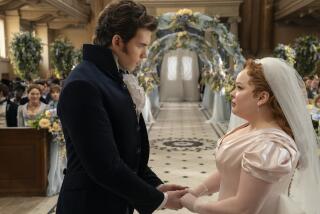Goodreads enlists its 100,000th author
Although its website only tallies 99,961, Goodreads has announced Wednesday that membership in its verified author program has reached 100,000.
The website for readers, which was purchased by Amazon in 2013, verifies authors who have signed on to use the site. For an author who is just starting out, it’s a way to make his presence known. Perennial bestsellers such as Jodi Picoult can take over the author pages that exist on the site, filling out biographical and bibliographic information.
Some of the well-known writers who are part of the Goodreads Author Program are Stephen King, Neil Gaiman, Cassandra Clare, Rick Riordan, James Patterson, Margaret Atwood, Nicholas Sparks, Amy Tan, David Baldacci, and John Grisham.
Goodreads is a place -- another place -- for authors to blog, post videos, make fans and friends. What distinguishes it from other social media such as Facebook and Twitter is that it’s a way for authors to engage directly with readers who come to the site specifically to talk about books.
Writers who sign up for the Goodreads Author Program are encouraged to “write a blog and generate a band of followers,” “lead a Q&A discussion group for readers,” and create “a book giveaway to generate pre-launch buzz,” among other things.
Someone like Patterson, who is so busy he hires co-writers to help him finish his books, will probably spend little time blogging on the site. That’s a duty that might be managed by a publicist working on a specific book, an assistant, maybe a designated fan.
Direct engagement like this will be more appealing -- and more vital -- to authors with lower profiles who are seeking to reach new readers. Goodreads can be a great place for that. Yet it is hard to find the signal in the noise -- and now more authors than ever are there too, making it a fairly noisy place.
And it’s not without its hazards. Last year, Goodreads had trouble with bullying behavior of some readers toward authors. In response to a campaign to “stop the GR bullies,” the site began deleting reviews not based on books and removing public bookshelves with inappropriate names such as “author should be raped in prison.” The deletions caused another round of protest, as they were undertaken without warning.
In other words, engaging with readers is not without its hazards.
Yet in today’s marketplace, authors who are hoping to find new readers are likely to take the risk.
ALSO:
Shelley Jackson’s winter’s tale
Story Prize finalists: George Saunders, Rebecca Lee, Andrea Barrett
Robert Gates rages against the political machine in his memoir, ‘Duty’
Carolyn Kellogg: Join me on Twitter, Facebook and Google+
More to Read
Sign up for our Book Club newsletter
Get the latest news, events and more from the Los Angeles Times Book Club, and help us get L.A. reading and talking.
You may occasionally receive promotional content from the Los Angeles Times.









